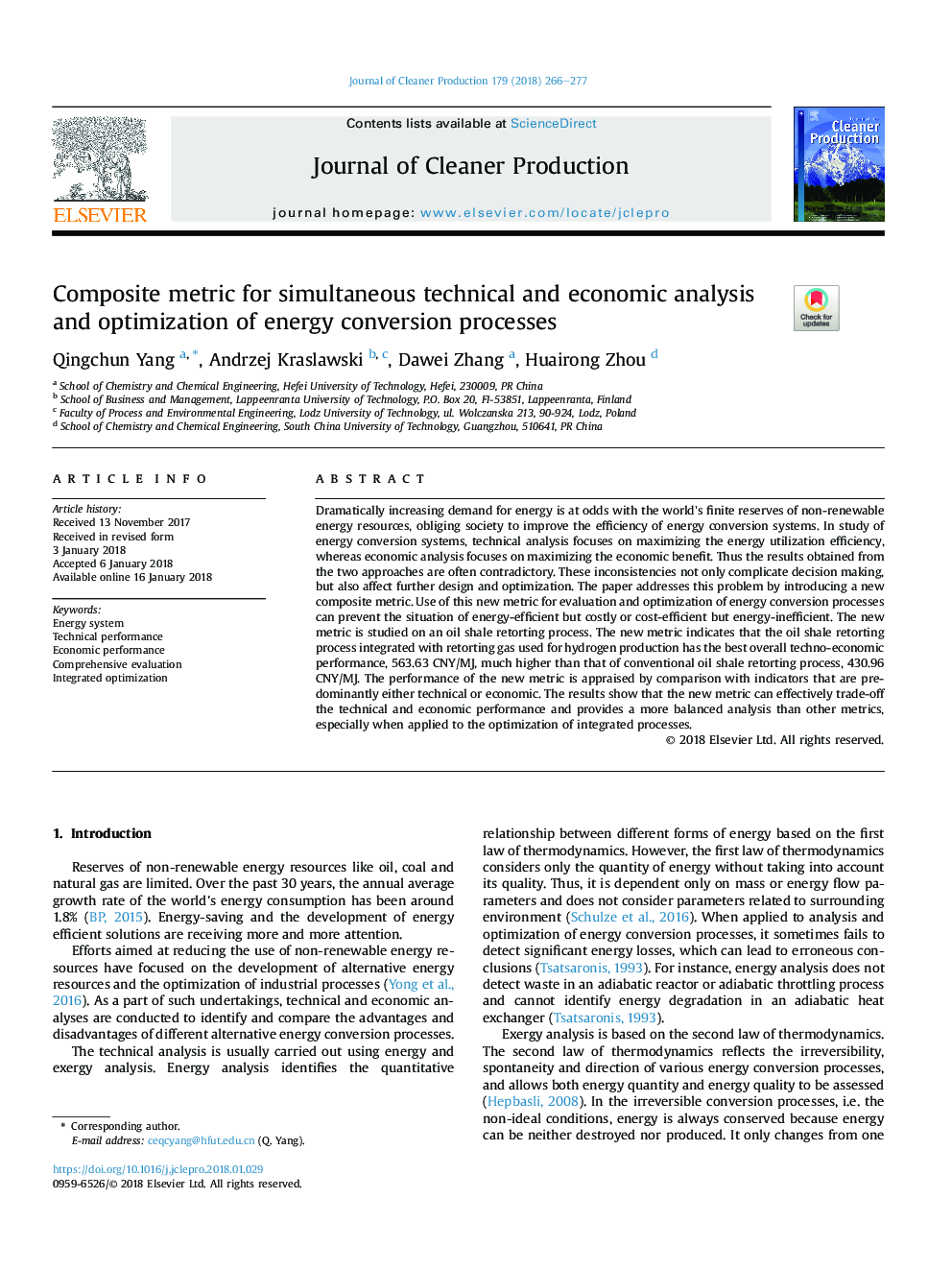| Article ID | Journal | Published Year | Pages | File Type |
|---|---|---|---|---|
| 8098207 | Journal of Cleaner Production | 2018 | 12 Pages |
Abstract
Dramatically increasing demand for energy is at odds with the world's finite reserves of non-renewable energy resources, obliging society to improve the efficiency of energy conversion systems. In study of energy conversion systems, technical analysis focuses on maximizing the energy utilization efficiency, whereas economic analysis focuses on maximizing the economic benefit. Thus the results obtained from the two approaches are often contradictory. These inconsistencies not only complicate decision making, but also affect further design and optimization. The paper addresses this problem by introducing a new composite metric. Use of this new metric for evaluation and optimization of energy conversion processes can prevent the situation of energy-efficient but costly or cost-efficient but energy-inefficient. The new metric is studied on an oil shale retorting process. The new metric indicates that the oil shale retorting process integrated with retorting gas used for hydrogen production has the best overall techno-economic performance, 563.63 CNY/MJ, much higher than that of conventional oil shale retorting process, 430.96 CNY/MJ. The performance of the new metric is appraised by comparison with indicators that are predominantly either technical or economic. The results show that the new metric can effectively trade-off the technical and economic performance and provides a more balanced analysis than other metrics, especially when applied to the optimization of integrated processes.
Keywords
Related Topics
Physical Sciences and Engineering
Energy
Renewable Energy, Sustainability and the Environment
Authors
Qingchun Yang, Andrzej Kraslawski, Dawei Zhang, Huairong Zhou,
